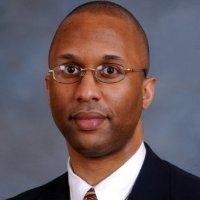When compared to a PKI solution, VIBE’s Total Cost of Ownership (TCO) is substantially lower.
Numerous infrastructure components are not required by VIBE, which not only reduces one-time costs but also recurring ones, as VIBE’s scalability and simplicity significantly reduces auditing and training requirements.
Hardware devices needed for both crypto technologies (such as HSMs) scale significantly better with VIBE, yielding roughly a 400% to 500% improvement when compared to PKI.
VIBECyber is to embed ‘VIBE-Inside’ cryptography in all major HSM, HSE and IoT processors, enabling customers to easily integrate into their IoT devices, applications, solutions, gateways and platforms, reducing installation and configuration costs.
When compared to PKI, the reduction in communications costs, the reduced infrastructure requirements and the ongoing operational improvements that VIBE provides deliver substantial savings for end customers, as follows:
The VIBE solution introduces significant one-time cost savings from omission of costly HW components required for PKI, such as Root CA, and from a substantial reduction in the number of HSMs required for VIBE vs PKI.
The largest cost savings stem from reduced operational overhead (fewer staff due to low complexity and better scalability, and less training and auditing requirements) and less infrastructure (no need for certificates and certificate management). Due to VIBE’S reduced complexity, no crypto or security specialists are needed to manage the system/environment.
Overall, when compared to managed PKI, the VIBE-based implementation eliminates the need for complex implementation policies, greatly improves manageability and can be delivered for significantly reduced one-time and ongoing costs.

Andrew is a senior executive with extensive background in Applications Engineering, and in particular, Business Development. With an MBA, and an undergrad degree in Aerospace (aka “rocket science”), and having realized high-level security clearance with the US Government, Andrew is a subject-matter expert when it comes to helping our team navigate the complex world of government and its related businesses and agencies. In Andrew’s words, he “thrives in the chaos of the unknown where so many opportunities exist.”
Andrew is a senior executive with extensive background in Applications Engineering, and in particular, Business Development. With an MBA, and an undergrad degree in Aerospace (aka “rocket science”), and having realized high-level security clearance with the US Government, Andrew is a subject-matter expert when it comes to helping our team navigate the complex world of government and its related businesses and agencies. In Andrew’s words, he “thrives in the chaos of the unknown where so many opportunities exist.”

Named Top Person To Follow on Tech by LinkedIn. Former Technology Partner Advisor at Bill and Melinda Gates Foundation. Helped “stand up” Office of Legislative at DHS. Served as first Director of Legislative Affairs at the DHS Science & Technology Directorate. A thought leader, influencer, technology evangelist. A featured writer/speaker/blogger. Topics include: homeland security, cyber security, CBRNE, artificial intelligence (AI), Internet of Things (IoT), science & technology, public/private partnerships, risk management, blockchain, innovation. Published in FORBES, Huffington Post, InformationWeek, MIT Sloan Blog, Computerworld, Federal Times, NextGov and many more.

Formerly educated with a degree in Applied Electronics Engineering and Industrial Computer Science from ENSEA, France, and in Artificial Intelligence from the renowned ENSIMAG University in Grenoble. France, Olivier’s first significant role in Applied Research was with Gemplus’s Telecom Division. An expert in embedded security, Olivier has worked extensively on numerous research projects ranging from the first implementation of an EAP SIM, in collaboration with CISCO, to the first implementation of a Javacard OTP with Verisign. Recognized as an expert in identity-management embedded technology, Olivier is an award-winning engineer who today is leading embedded development projects for VIBE.

Heiko worked at Philips for 13.5 years in several European countries, and he worked at Halo Creative & Design Ltd. at its headquarters in Hong Kong and Operations in China & US. Heiko is a co-founder of Purive. Heiko is a practical, professional manager with a proven track record in Supply Chain, Customer service, Planning & Logistics, Key account and Sales Management, General Management and Change Management. Being a Certified Lean Six Sigma Black Belt, Heiko has experience in leading complex multi-site international supply chain projects, customer service & logistics management, the building and managing of intensive partnerships on several levels for international key accounts and distributors, the building of effective sales organisations, profit & loss responsibility, business development, and large integration and change management projects.
Heiko has a Master of Science (MSc) in Industrial Engineering from the Georgia Institute of Technology, in Atlanta with a focus on Economic decision analysis, and a Master of Science (MSc) in Mechanical engineering from the University of Twente in the Netherlands with a focus on Production and Operations management. Today Heiko lives in Netherlands. Heiko speaks Dutch, English, and German.

Craig Stark has over 30 years of Business Development experience with new technologies and bringing complex solutions to market from large to start-up sized companies. With deep experience in strategic partnerships, channel development, solution marketing, product and industry marketing, Craig uses an agile, collaborative approach of innovation management to build sustaining value for partners and clients. Craig has focused on IoT and transformative technologies for the past five years. His current work with Strategy of Things focuses on Smart Systems, Smart Buildings, and Platform Business Models. Prior to that, he spent six years in the smart systems development business, where he served as CTO and co-lead in design authority at Blackstone Gates, an international CX and loyalty strategy consultancy. Craig has served on the CIO Strategy Council (Data and Security Standards), The Conference Board of Canada (advisory on IP strategy) and as an industry partner for the Innovation, Science and Economic Development for the National IP Strategy council and currently supports the NSERC National IoT Research Chair in support of bridging applied research to several industry segments. Craig has supported research efforts for the US NIST IoT Infrastructure investment project to apply to several industry and vendor segments.

Paul has extensive experience in cybersecurity. He served as the U.S. Representative to NATO for Information Security. As Special Assistant to the Director of the NSA he participated in technology research, investment, and partnerships in international cybersecurity and telecom technologies. Early in his NSA career, he carried out system penetration testing (hacking), and was an early team member of the first U.S. National Computer Security Center. Paul has authored national and international policies and publications/books on information security. Paul earned his M.B.A. in Corporate Finance from the University of Pennsylvania Wharton School of Business, and a Master of Public Administration (MPA) in International Policy, from Harvard University. His undergraduate degrees are from the University of North Carolina, a B.S. in Mathematics and a B.A. with Honors in Psychology.

A total of 50 years of experience in software engineering, Decision Sciences, System Dynamics Modeling, Scenario Planning, International Standards, business strategy synthesis, and simulation. Bob’s background includes 12 years of flight simulator design for USAF high-performance aircraft and 28 years at Intel applying quantitative decision methodologies to improve international standards negotiations and strategic business decisions. Bob represented Intel at GSM Association, 3GPP (wireless com standards), IETF, oneM2m (IOT standards), and Open Mobile Alliance (Digital Rights Management standards). Bob attended MIT and SUNY at Albany earning a BS degree in Electrical Engineering & Computer Science, with graduate work in system dynamics.

Dr. William “Dollar” Young, Jr is an accomplished strategist and technical leader with 31 years in the United States Air Force. His last Air Force position was as the initial commander of the Air Force’s newest operational organization, a first-of-its-kind wing tasked to deliver Electromagnetic Spectrum capabilities to all Air Force weapon systems and platforms via “missionware” applications, mission data, advanced networking and Electromagnetic Warfare Artificial Intelligence/Machine Learning algorithms.
Dr. Young is the creator of System-Theoretic Process Analysis for Security (STPA-Sec). STPA-Sec is the security analysis framework used to help secure many of America’s most complex new weapon systems. Dr. Young is a former consultant for MIT Lincoln Laboratory where he worked on new Security Engineering Analysis methods for the lab’s Cyber System Assessments Group. He is an Associate Research Professor at Syracuse University in the Electrical Engineering and Computer Science Dept. In this role, he is currently developing a new methodology for securing Internet of Things devices. Dr. Young previously served as the Chief Strategist for the Commander of the Air Force Air Education & Training Command.
Dr. Young earned his PhD at the Massachusetts Institute of Technology (MIT) in 2016 in Systems Engineering with an emphasis in Secure Systems Engineering. He has four Master’s Degrees. Dr. Young was one of the initial graduates of the Air Force’s Grand Strategy Program. He has a Bachelor of Science in Engineering Science with an emphasis in Electrical and Aeronautical Engineering.

A former president of NASDAQ. Was a Captain in the 438th Military Airlift Wing, and served as a Major in the USAF Reserve. He has testified before the Joint Committee on Economics of the US Congress, and before the House Science Committee, the House Permanent Select Committee on Intelligence, and the House Committee on Homeland Security. Served on the International Advisory Council for the Monetary Authority of Singapore, and is currently on the Board of Visitors of the University of Maryland School of Medicine, and a Trustee of Hollins University. Al earned a B.A. from the University of Virginia, and received his M.B.A. from The Wharton School at the University of Pennsylvania.